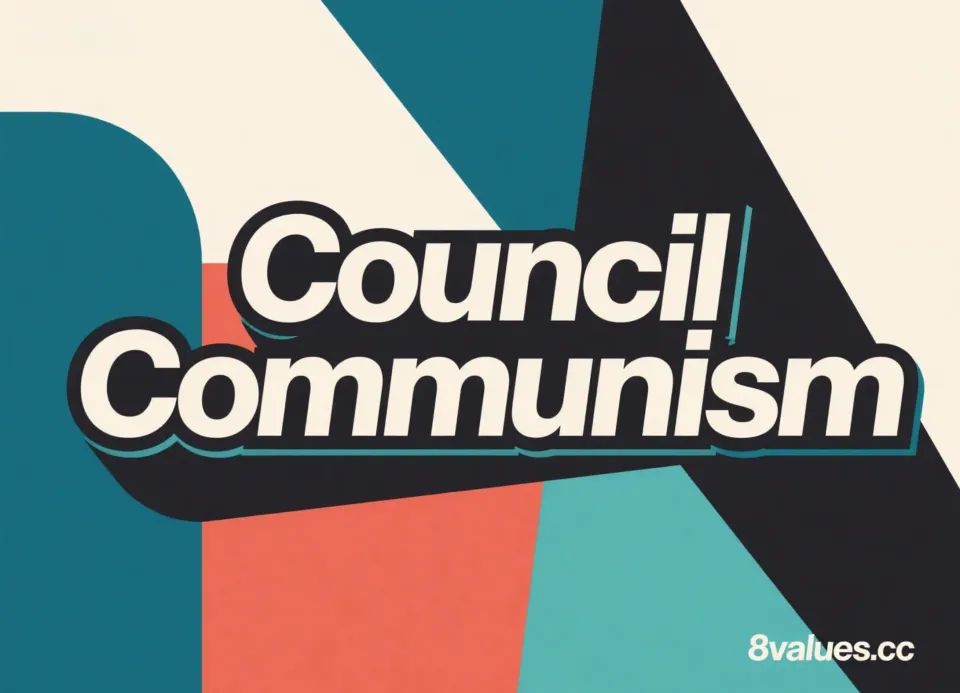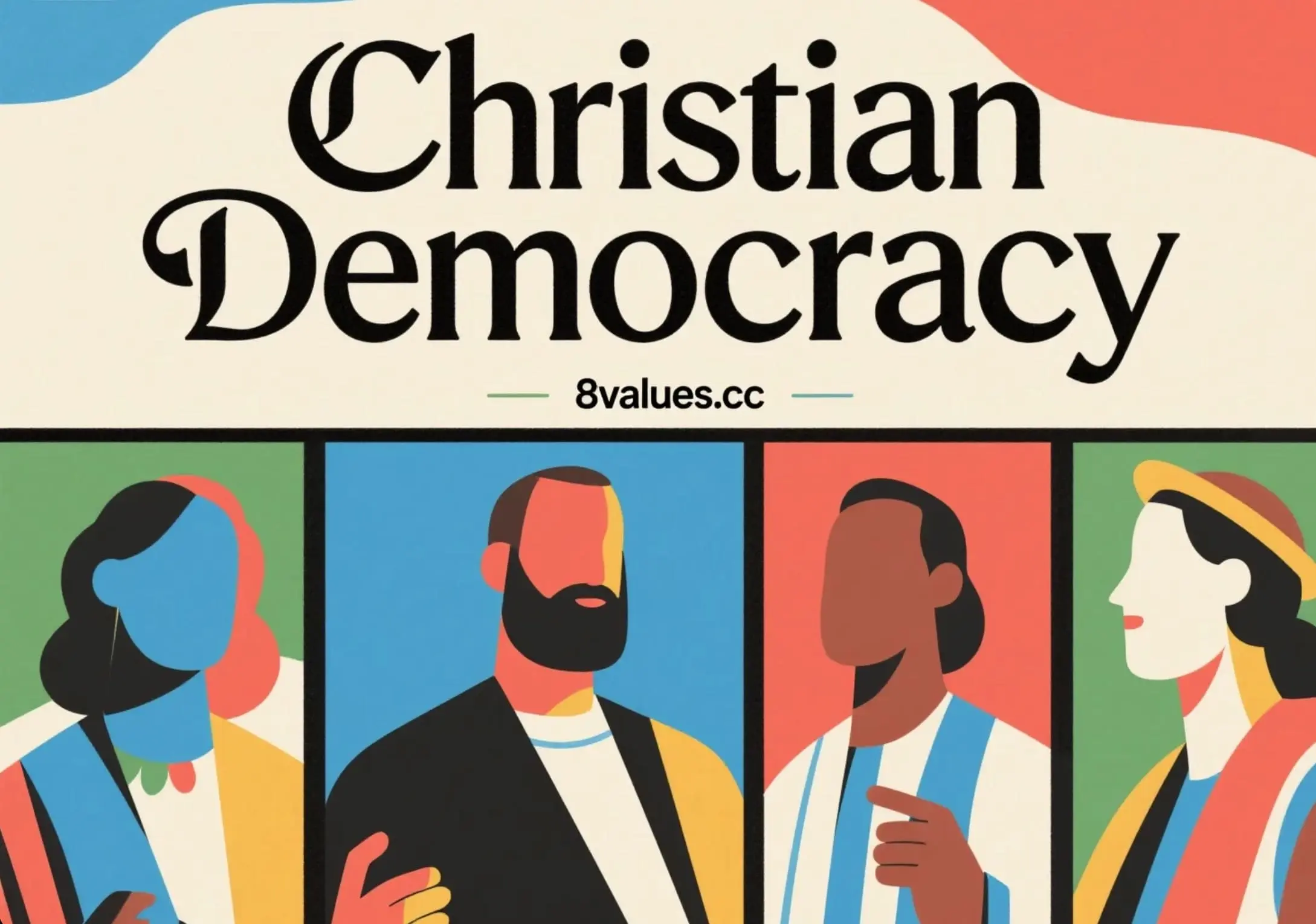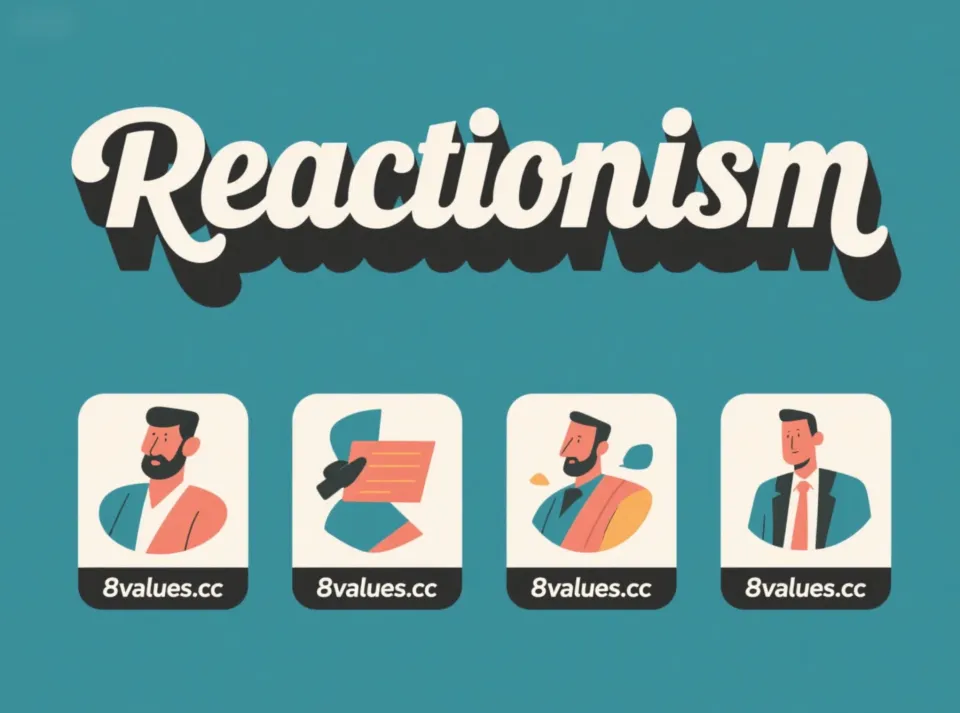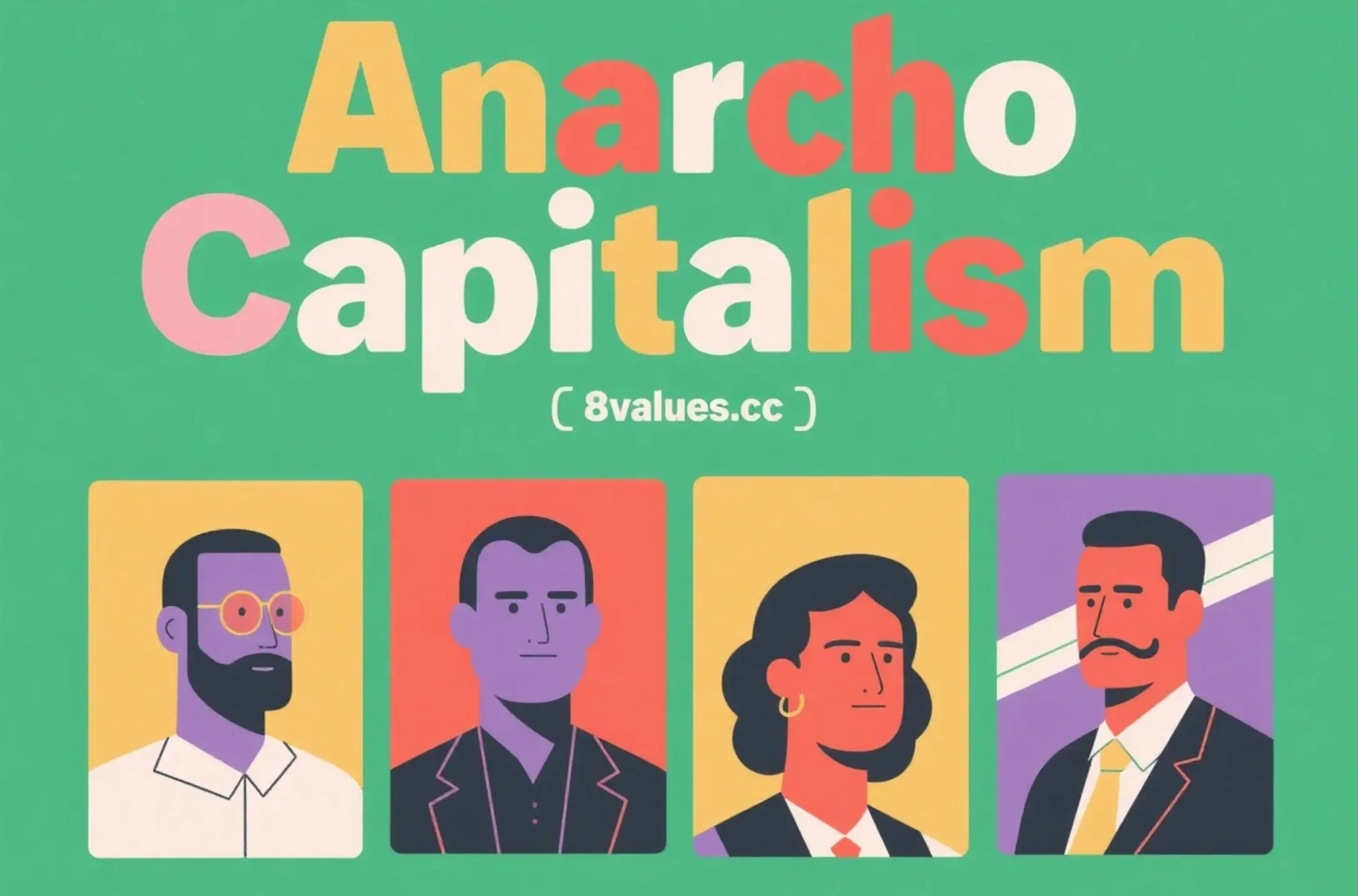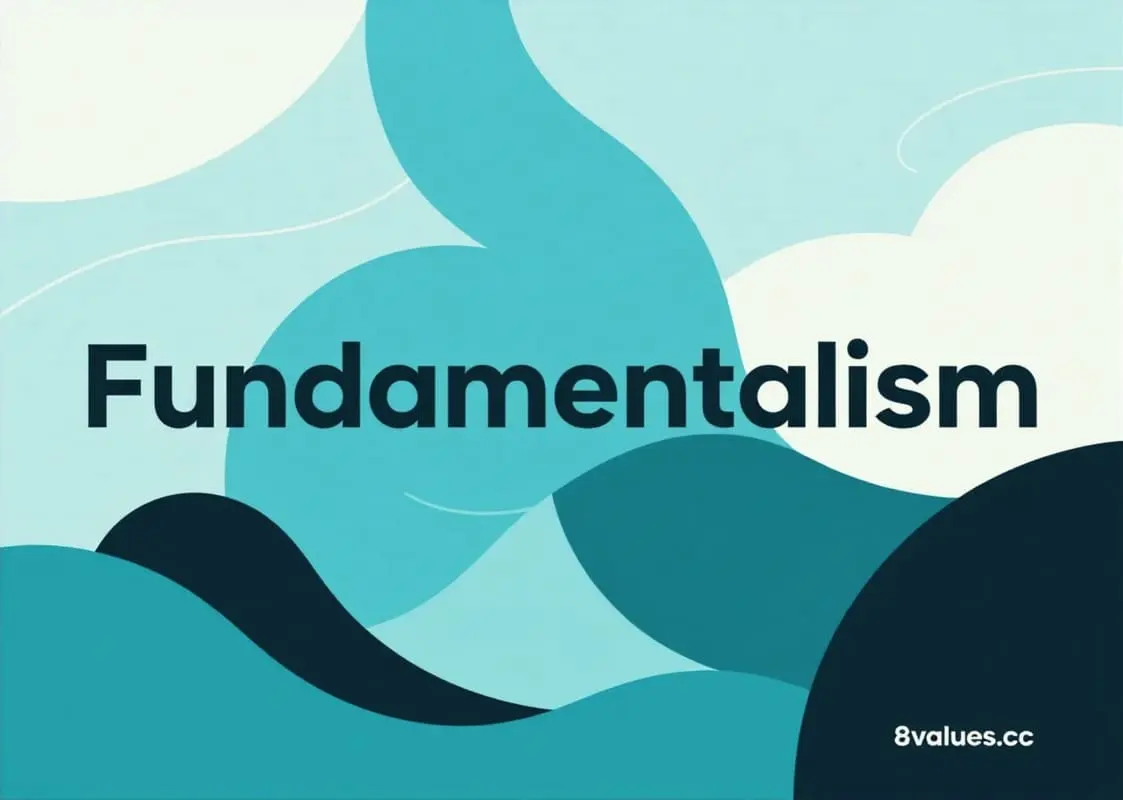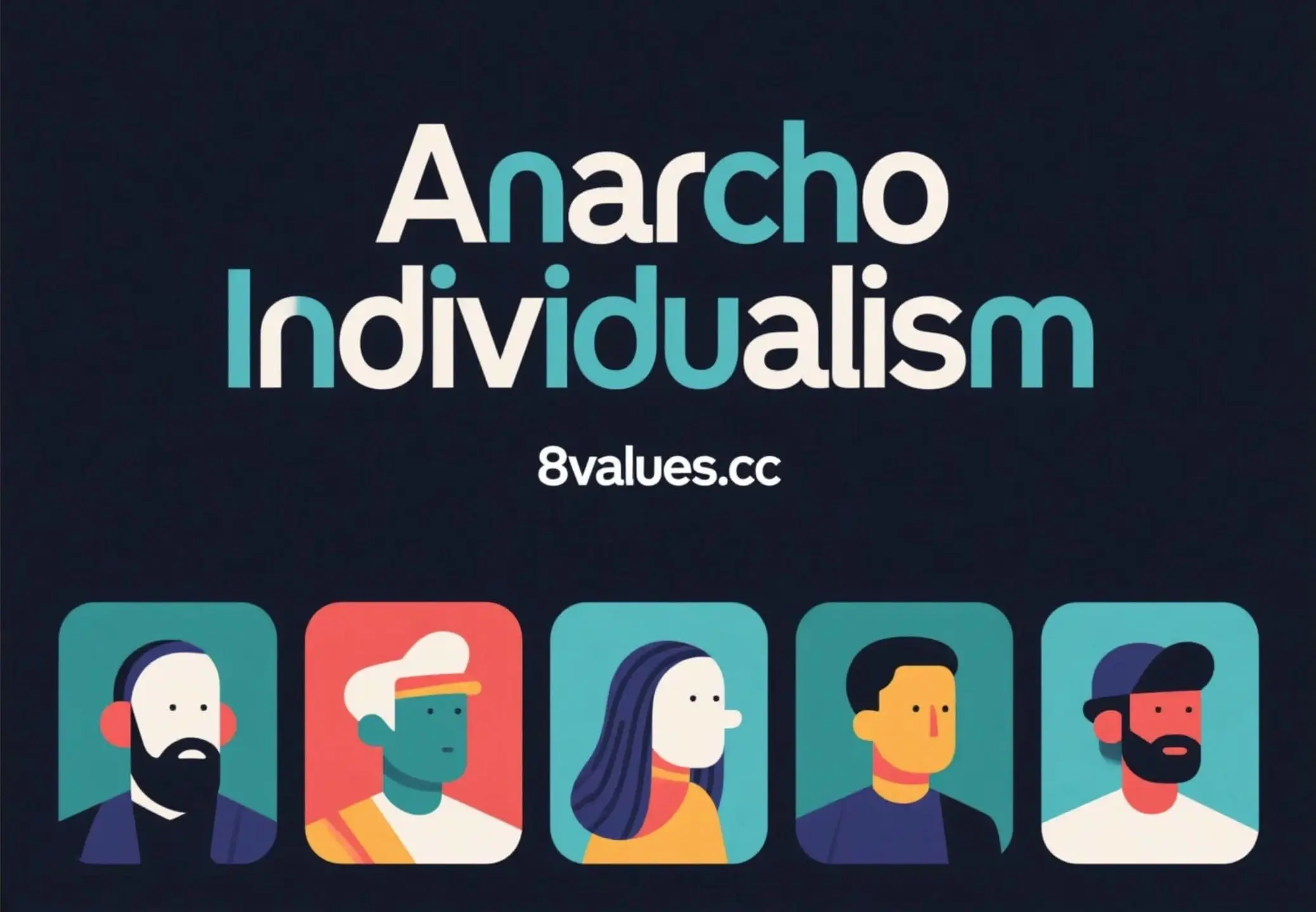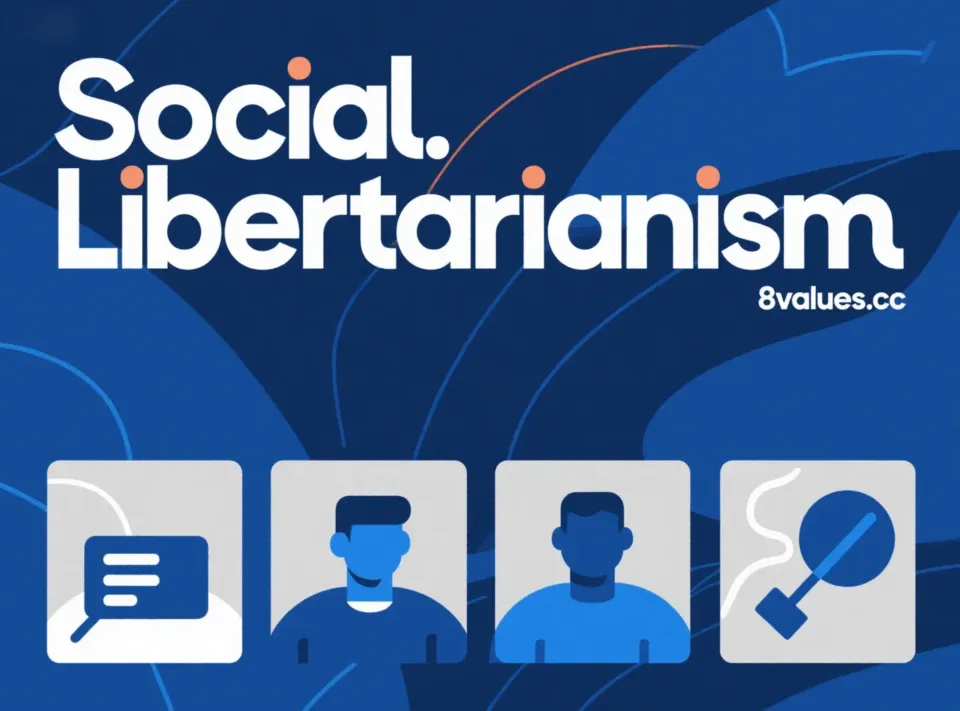Council Communism: Workers’ Autonomy, Anti-Vanguard and the Radical Exploration of Orthodox Marxism
In-depth interpretation of the core propositions, origins and historical practices of Council Communism. Learn how this left-wing trend emphasizes direct democracy in workers' councils, opposes the Leninist vanguard model and state capitalism, and explores the path to proletarian self-emancipation. If you are interested in your own political values and tendencies, you can try taking the political values and ideological tendencies test to get your precise positioning.
Council Communism is a radical left-wing trend that originated in Germany and the Netherlands in the 1920s. It continues today as a theoretical and action position within Left-wing Marxism and Libertarian Socialism . The birth of this school of thought was inspired by the practice of workers' councils (soviets) that emerged from the Russian Revolution of 1905 and 1917 and the German Revolution of 1918.
The core argument of council communism is that democratic workers' councils are the natural form of working class organizational and governing power. It is in sharp contrast to the reformist line of Social Democracy and the vanguard model of Leninism . Many seekers who are confused about their political stance, such as individuals who have completed the 8 Values political test or the Left Values political test and found that the results favored this trend of thought, will delve deeper into the essence of this theory.
The origins of committee communism and the anti-Bolshevik stance
The rise of committee communism is inseparable from the early Marxists' profound criticism of the Bolshevik revolutionary path in Russia.
The Rise of the Theoretician
Key theorists of council communism included the German educator Otto Rühle and two important Dutch figures: the astronomer Anton Pannekoek and the poet Herman Gorter. Paul Mattick was another important theorist who continued to spread the ideas of Council Communism after his exile in the United States.
Organizationally, its main carrier is the Communist Workers' Party of Germany (KAPD) , which opposes parliamentaryism and trade unionism. Closely allied with the KAPD was the AAUD , a revolutionary factory organization based in part on the American model of the Industrial Workers of the World (IWW).
Criticism of "State Capitalism"
The Council Communists were initially enthusiastic about the Russian Revolution. However, their views quickly changed when Lenin seized power in the Russian government and concentrated power in the hands of himself and his supporters.
Council communists believe that the authoritarian style of rule under Leninism is more like the state-owned version of the capitalist system than true Marxism. They described Soviet Russia as state-capitalism .
They argue that the Bolshevik Revolution ultimately became a bourgeois revolution , with a new party bureaucracy replacing the old feudal aristocracy and individual capitalists, but capitalist relations such as wage labor and centralized control remaining.
The core proposition of the committee: the self-emancipation of the proletariat
Council communists adhere to Marx's view that "the emancipation of the working class is a matter for the working class itself." The core of this trend of thought lies in the unique understanding of the relationship between proletarian spontaneity, consciousness and organization.
workers council supremacy
Workers' Councils were central to the theory of council communism.
Workers' councils are gatherings where workers discuss their struggles and decide what actions to take. In revolutionary times, workers' committees were both a tool of struggle and a form of management for the future communist society .
- Direct democracy mechanism : Councils are made up of elected representatives from the workplace who can be recalled and replaced by voters at any time . This mechanism ensures that representatives always follow the will of workers and prevents the concentration of power.
- Decentralization : All control is decentralized and given to committees. If the workplace is too large for all workers to assemble, decision-making power is given to special committees composed of representatives who can be recalled at any time.
Opposing the Vanguard Party and Party Dictatorship
Council Communism rejected the vanguard theory . They criticize the Leninist model of party leadership and believe that political parties will alienate into new ruling classes.
Otto Rühle once made the famous assertion: " The revolution is not a party affair " (Die Revolution ist keine Parteisache).
Council communists believed that any seizure of power by a revolutionary party would inevitably lead to party dictatorship . They emphasized that the function of revolutionary organizations is not to carry out revolution on behalf of the working class , but only to agitate, publicize and educate within the class . Pannekoek believed that communist revolution cannot be achieved by ignorant masses who blindly follow the leadership of elites , but requires the class as a whole to understand, decide and implement the conditions, methods and means of its struggle. Theoretical knowledge should serve as a means of accelerating and expanding the development of communist consciousness.
Revolutionary spontaneity and the cultivation of consciousness
Council communism emphasizes the development of the working class as a revolutionary subject through the deployment of conscious self-activity through practical confrontations of class struggle in severe crises of capitalism.
- The power of spontaneity : Committee communists believe that workers’ committees are organizational forms that arise spontaneously during periods of intense class struggle . For example, they drew inspiration from the Soviets in Russia and the spontaneous actions of workers in the German Revolution.
- Importance of Consciousness : They reject pure spontaneism . The broad class consciousness of the working class is acquired through active participation in the practice of class struggle. This consciousness is a necessary condition for the self-emancipation of the working class. Pannekoek pointed out that revolution is a long process of organization and self-education .
Economic Model: Toward a Moneyless Society
The goal of committee communism is to achieve a stateless, marketless communist society .
against central planning
Council communists opposed a centralized "state socialist" planned economy. Although they supported a planned economy , they believed that such planning should be decentralized and coordinated and managed by workers' councils.
Labor time calculation
In terms of economic organization, they advocated the abolition of wages and the realization of common ownership of the means of production.
The Group of International Communists (GIC) in the Netherlands has developed a detailed economic calculation model, the core of which is to use socially necessary labor time as an accounting unit to regulate production and distribution to replace the capitalist value form.
Connections and differences with other trends of thought
Council communism is often classified as Left Communism and Libertarian Marxism .
Fundamental Opposition to Leninism
Council Communism is clearly opposed to Leninism (Bolshevism). In his book "Left-Wing" Communism: An Infantile Disorder, Lenin criticized committee communists and other left-wing figures, arguing that their refusal to work in trade unions and parliament was an "infantile disease." Lenin believed that the committee communists' imagination of a pure workers' union would alienate them from the masses and endanger the development of the revolutionary cause.
Similarity to anarchism
Council Communism has much in common with Anarcho Communism and Anarcho-Syndicalism . Both are opposed to the state and the vanguard party, and pursue the ultimate goal of a classless, stateless, and currencyless society.
The main difference is that the theoretical basis of committee communism is Marxism , while the theoretical basis of anarchist communism is anarchism. Furthermore, council communism recognized the necessity of the “dictatorship of the proletariat” through workers’ councils (i.e., the transitional phase).
against traditional institutions
Council communists were skeptical and opposed to mainstream institutions:
- Opposition to Reformism : The belief that reforms are ineffective in achieving necessary changes.
- Opposition to parliamentary politics : The view that parliamentary activity exemplifies the active role of leaders and the passive role of the masses, inhibiting the autonomous activity needed by the working masses.
- Opposition to trade unions : Many people believe that traditional trade unions have been co-opted by capitalism and have become institutions that maintain the status quo, or have become tools for capitalists and the state to manage workers’ struggles.
The ups and downs of history and contemporary reflections
Council communism reached its climax in the 1920s. The main organization was the Communist Workers' Party of Germany (KAPD), whose membership reached more than 40,000 people at its peak. However, due to internal disputes, factional divisions, and the stability of Weimar Germany, the movement declined rapidly in the early 1930s, and largely disappeared as a large-scale movement after the rise of Nazism.
Criticisms and dilemmas
Council communism also faced multiple criticisms and theoretical dilemmas:
- The dangers of "councilism" : Some critics (including left-wing communists) call council communists "councilists", arguing that they attach too much importance to the "form" of workers' councils and ignore their proper "communist content." This formalism may lead to workers taking over the means of production spontaneously in a crisis, and ultimately establishing only "worker self-managed capitalism" that retains wage labor relations.
- Organizational deficiencies and coordination challenges : Critics argue that the decentralized model of committee communism may lack sufficient unified strategy and coordination capabilities in the face of complex economic coordination or external military threats.
- Challenges of the non-working class : Council communism relies too much on "worker purity" but has difficulty addressing the interests of other groups in society (such as small farmers, self-employed people, the old aristocracy). If the council resorts to violence in order to achieve a "proletarian agenda" it may slide towards Leninism; if it compromises in order to accommodate other classes it may slide towards reformism and a capitalist parliament.
contemporary influences
Although Council Communism has declined as an independent movement, its ideas still profoundly influenced later left-wing ideological trends, including Autonomist Marxism and the Situationist International. Its emphasis on worker self-management, grassroots democracy, and systematic criticism of bureaucratic rule provided important theoretical tools for the modern anti-capitalist movement.
If you would like to learn more about how different ideologies view social organization, economic models, and democratic forms, we encourage you to continue exploring the official 8Values Political Ideology Test website blog, or conduct a deeper self-awareness through our political testing tool .
